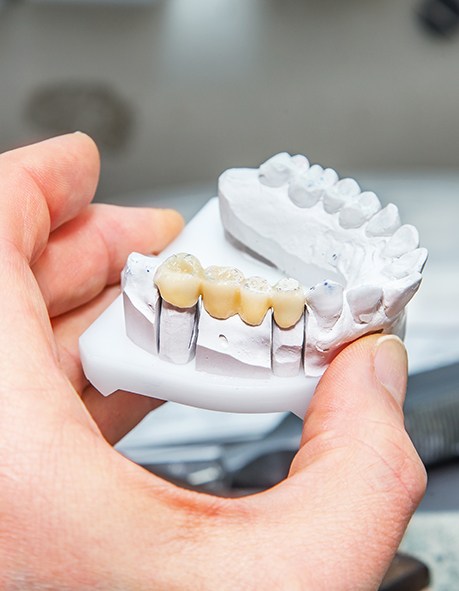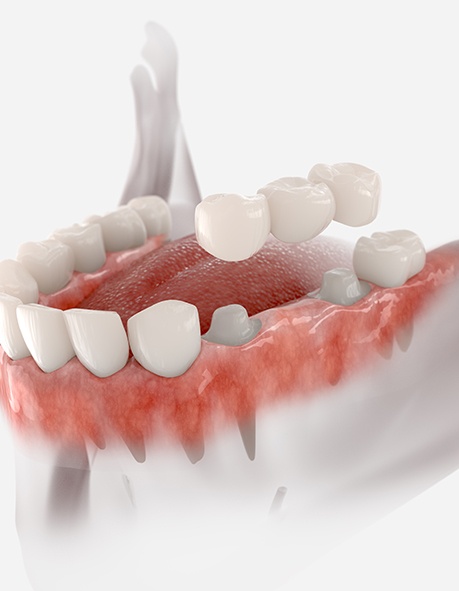Dental Bridges Norwood
Fill the Gaps in Your Smile

At Central Dental Associates in Norwood, our team knows how important it is to address tooth loss. Your oral health depends on it! Plus, filling the gaps in your smile can promote increased confidence. If you have lost one or more teeth, we might suggest that you get a fixed dental bridge, which is a relatively fast way to replace lost teeth and improve dental function. What is a fixed bridge, and how might this treatment benefit you? Continue reading below to find out.
Why Choose Central Dental Associates for Dental Bridges?
- Beautiful, Lifelike Materials Available
- Highly Skilled Dentists & Team
- Flexible Payment Options
What Is a Dental Bridge?

A dental bridge is a multi-unit prosthetic that is designed to replace one or more missing teeth in a row. A traditional fixed bridge can usually replace 1 – 3 missing teeth, while an implant bridge can be larger and may be able to replace several teeth.
We often recommend bridges for patients whose oral tissues are in good health and who want a relatively fast and conservative way to regain a complete smile.
Types of Dental Bridges

There are a few different types of bridges. The one that is best for you will depend on how many teeth you have lost, the state of your oral tissues, your personal preferences, and other factors. During your tooth replacement consultation, our team can make a personalized recommendation to help you determine which type of prosthetic you should receive.
Here is an overview of the two most common types of dental bridges:
Traditional Bridge
A traditional bridge has a crown on each end, which get attached to the teeth that surround an empty space (called the abutment teeth). One or more pontics (artificial teeth) are supported by the crowns. A traditional bridge usually takes just a few appointments to design and place, and it has the potential to last for a decade or longer.
Implant Bridge
Instead of relying on the remaining natural teeth for support, an implant bridge gains all of its strength from dental implants. The implants act as prosthetic tooth roots, and they can support multiple artificial teeth between them. Implant bridges are very strong, and patients like the fact that they usually do not require the modification of any natural teeth.
The Benefits of Dental Bridges

A dental bridge can deliver many benefits:
- Reliable function and strength. A well-made bridge can allow you to eat almost any food with confidence.
- Bridges can be made of lifelike materials that look almost identical to natural teeth.
- Bridges can last for quite a long time before it becomes necessary to replace them.
- Easy maintenance. Caring for a dental bridge does not require a lot of extra time or effort. In addition to brushing and flossing, you need to remember to clean beneath your prosthetic.
Would you like to find out if a dental bridge is right for you? Contact our Norwood dental office to request a consultation!
